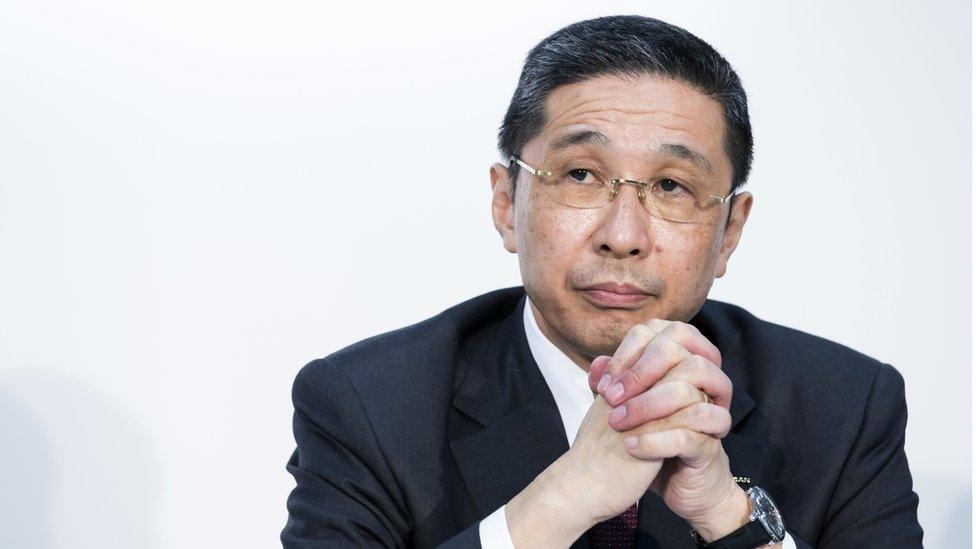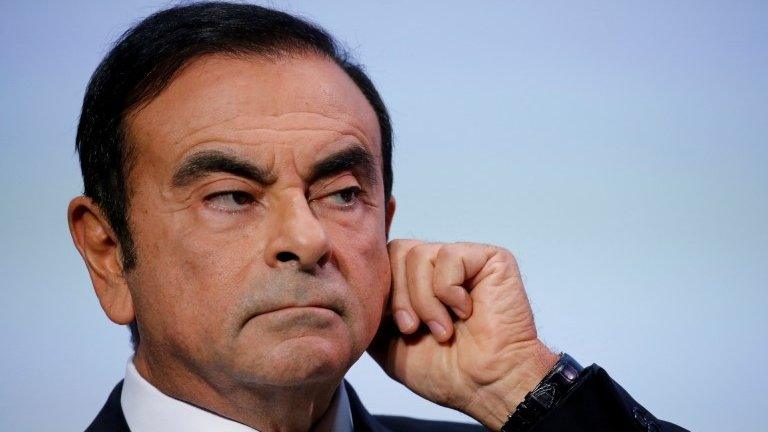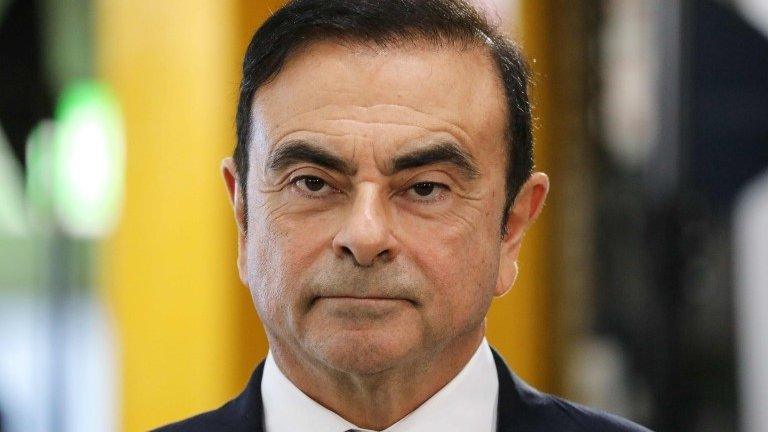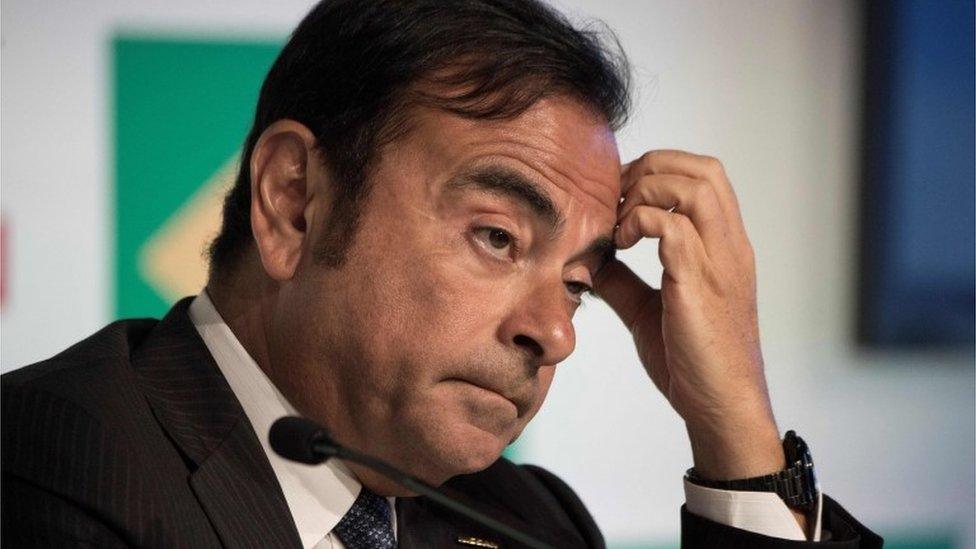Nissan boss says he was overpaid but denies wrongdoing
- Published

Nissan boss Hiroto Saikawa has accepted he was overpaid as part of a company compensation scheme, but denied any wrongdoing.
The chief executive of the Japanese carmaker is accused of receiving hundreds of thousands of dollars worth of extra stock option payments in 2013.
He told Japanese media he would return the money he had wrongly received.
It is the latest twist in a saga plaguing the carmaker that centres on improper payments to top executives.
Mr Saikawa has been accused of improperly boosting his compensation in 2013 by 47 million yen ($440,572; £359,869) as part of a stock appreciation rights scheme, according to media reports.
Such schemes tend to link bonuses with the performance of company stocks over a certain period.
Mr Saikawa reportedly delayed his bonus payout by a week to benefit from a stock rise, the reports said.
"The operation of the [scheme] was different than it should have been," Mr Saikawa told Japanese media.
"I thought the procedures were handled properly and I didn't know [about the misconduct]."
A Nissan spokesperson told the BBC that the findings from an internal investigation were scheduled to be reported to the board of directors next week, on 9 September.
"We have heard that share appreciation rights will also be part of this report," the spokesperson said.
Nissan troubles
The investigation comes at a challenging time for Nissan.
The arrest of former boss Carlos Ghosn, the architect of the Nissan-Renault partnership, has cast doubt over the future of its alliance.
The company also saw a slump in quarterly profit and announced sweeping job cuts earlier this year.
Mr Ghosn says his arrest in Japan was the result of a "plot and treason" against him.
Mr Saikawa, who had promised to improve the running of the company in the wake of Mr Ghosn's arrest, described the bonus system as "a scheme of the Ghosn era".

Analysis
Theo Leggett, business correspondent
This will cause serious embarrassment at Nissan's headquarters in Yokohama.
The company is currently struggling to stem a hefty fall in profits, restructure its business and repair its fractured relationship with its French partner, Renault. The last thing it needs is the slightest whiff of further scandal.
But scandal is something Nissan cannot seem to emerge from. Its former chairman, Carlos Ghosn, was ousted last year, following his arrest on charges of serious financial misconduct - charges he denies. He claims he is a victim of backstabbing, of a coup orchestrated by his former colleagues.
Mr Saikawa, meanwhile, has been a vocal critic of Mr Ghosn's management style and alleged conduct.
As accusations and counter-accusations have been thrown around, the company has seen its fortunes and its credibility suffer. Now, speculation is growing that Mr Saikawa himself will step down before long.
And although he has denied any direct involvement in the overpayments, his authority has clearly been damaged once again.
- Published31 December 2019

- Published31 December 2019

- Published31 December 2019
